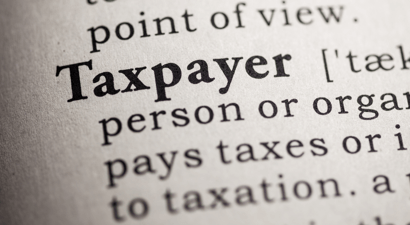Additional Tax Amendments: VAT
Notional input tax on goods containing gold
In 2014, changes were made in the Value-Added Tax Act to exclude goods containing gold from the definition of second-hand goods. It has come to government’s attention that the exclusion of goods containing gold from this definition is too restrictive, especially in situations where the gold content of such goods is minimal or inconsequential. It is proposed that the 2014 amendment be revised to eliminate this anomaly.
Taxation of non-executive directors’ fees
Under the Income Tax Act and the Value-Added Tax Act, a non-executive director’s fees may be subject to both employees’ tax (PAYE) and VAT. Views differ on whether to deduct PAYE from these fees or if the director should register as a VAT vendor. It is proposed that these issues be investigated to provide clarity.
Grants from the National Skills Fund and sector education and training authorities
The Value-Added Tax Act (1991) zero-rates grants allocated through sector education and training authorities (SETAs), but does not specifically mention those allocated through the National Skills Fund. Aligning the VAT treatment of these two grant allocations will be considered.
Loyalty programmes
Section 10(18), (19) and (20) of the Value-Added Tax Act deals with how issuing and redeeming tokens, vouchers or stamps are to be treated for VAT. There are no similar provisions in the act to deal with loyalty programmes and the VAT implications of redeeming loyalty points. It is proposed that loyalty programmes be analysed and legislative amendments be considered to provide clarity on their VAT treatment. The provisions relating to vouchers will also be reviewed to determine if they require amendments.
Determined value of company cars
VAT Regulation 2835 specifies a method for establishing the determined value of a company car for output tax purposes. This method differs from the method prescribed in paragraph 7(1) of the Seventh Schedule of the Income Tax Act. These differences have resulted in employers and payroll managers calculating the determined value of company cars using two methods and maintaining two sets of records. In addition, both of these determined values can be depreciated. The use of two methods and maintenance of two sets of records creates an administrative burden. It is proposed that the provisions of the VAT Regulation 2835 be aligned with the provisions of the Seventh Schedule of the Income Tax Act.
Waivers and cancellations of debt
Waivers and cancellations are not included in the definition of financial services. Vendors who waive or cancel debts provide a service through the surrender of a right. Debts that are waived or cancelled between connected persons would trigger an output tax liability calculated on the open market value of the amount waived, even though no consideration will be received. Surrendering the right to receive money (surrendering of a debt security) could also be perceived to be a separate supply. It is proposed that the tax implications relating to these supplies be analysed to determine if a legislative amendment is required.
Alignment of prescription periods
A person may deduct an amount from output tax attributable to a later tax period, provided this later period falls within five years from the date of certain events, for example, the date a tax invoice should have been issued. It is proposed that an input tax deduction be limited in certain instances to the tax period in which the time of supply occurred. In addition, it is proposed that the time limit for the payment of refunds be clarified.
Indirect exports
In terms of the Value-Added Tax Act, a vendor that elected to supply goods at the zero rate for an indirect export may in certain instances be required to account for output tax if the documentary requirements of Regulation 2761 are not met. Provision is made in Regulation 2761 for the vendor to claim an input tax deduction where the relevant documents are subsequently obtained within certain time periods. This section of the act, however, does not refer to the input tax deduction allowed in Regulation 2761. It is therefore proposed that this right to a deduction be referred to in the act to align it with Regulation 2761.
Alignment of VAT and customs schedules
Schedule 1 of the Value-Added Tax Act contains items that are exempt from VAT on importation. According to the Customs and Excise Act, items that are exempt from VAT on importation are identified by heading numbers or rebate items and descriptions as contemplated in schedules 1 and 4 of the act. It is proposed that the notes to the item numbers in schedule 1 of the Value-Added Tax Act be aligned with the notes to the item numbers in schedules 1 and 4 of the Customs and Excise Act.
Goods lost, destroyed or damaged
The Value-Added Tax Act was amended to include item number 412.07 to exempt goods from VAT on importation if they are unconditionally abandoned to the commissioner or destroyed with the commissioner’s permission. No similar exemption exists for goods proved to have been lost, destroyed or damaged through, for example, natural disasters or such circumstances that the commissioner deems exceptional. It is therefore proposed that the legislation be amended to exempt the above-mentioned goods from VAT.
Payments basis
The Value-Added Tax Act provides for public authorities and municipalities as defined in section 1 to be registered on the payments basis. In turn, section 15(2A) requires vendors who are registered on the payments basis to issue a tax invoice for any one supply that exceeds R100 000. However, public authorities and municipalities do not have to meet this requirement. This dispensation is not extended to municipal entities. It is proposed that a similar dispensation be granted to municipal entities.
Alternative documentary proof
Section 16(2)(g) of the Value-Added Tax Act determines that a deduction may be allowed where a vendor is in possession of alternative documentary proof that is acceptable to the commissioner. The commissioner’s discretion is limited to circumstances where the vendor is unable to obtain the documents prescribed in section 16(2)(a) to (f). It is proposed that scope be provided for the commissioner to take other considerations into account in accepting alternative documentary proof.
Removal of goods from a customs controlled area located in a special economic zone
Businesses that are located in a customs-controlled area (CCA) within a special economic zone enjoy certain VAT cash-flow benefits when importing goods into the CCA. To further support the benefits of investing in special economic zones, an amendment is proposed to allow for the VAT-free movement of goods that are imported into a special economic zone’s CCA to a manufacturing duty rebate user, provided there is a sale subject to VAT.





